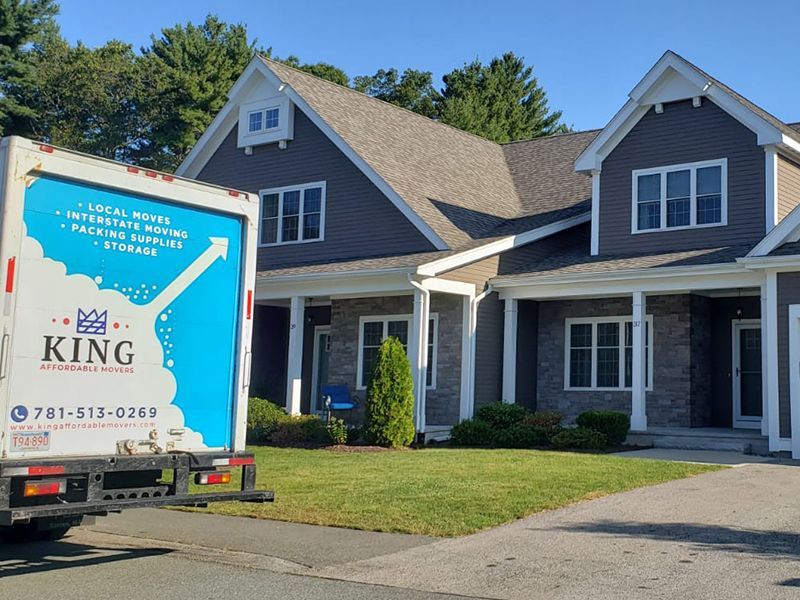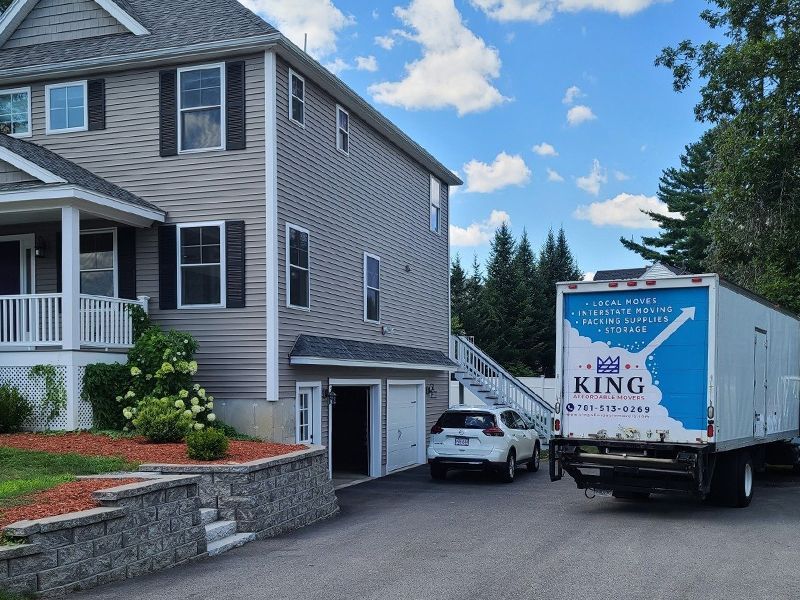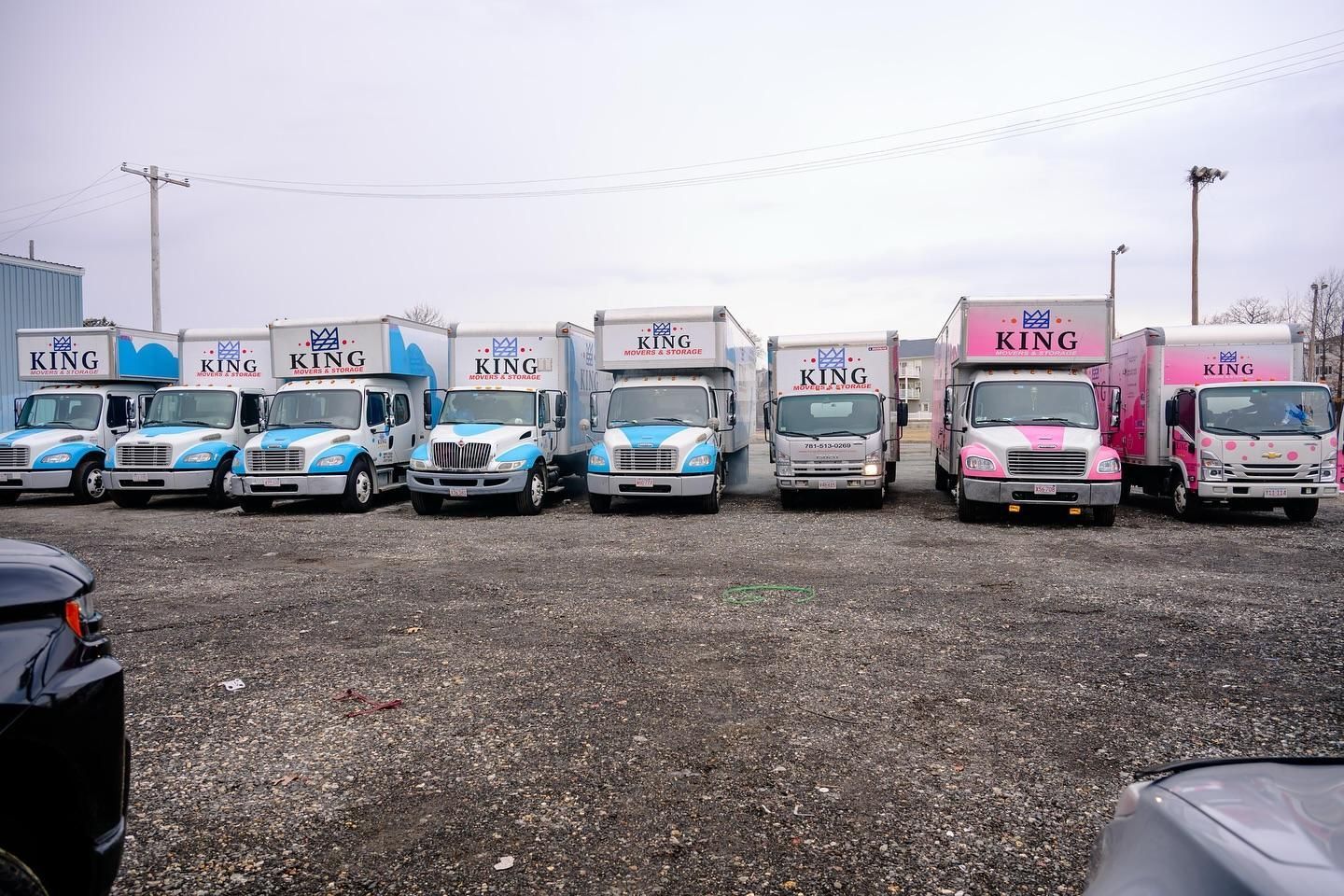The Shift from Boston’s High-Rise Offices to North Shore Workspaces: A Growing Commercial Moving Trend
In the wake of hybrid work, changing company needs, and rising downtown office costs, businesses across Greater Boston are rethinking where they set up shop. Increasingly, the trend is clear: companies are downsizing from large, high-rise office buildings in Boston’s Financial District, Back Bay, and Seaport, and relocating to smaller, more flexible office spaces in the North Shore. Cities like Lynn, Peabody, Beverly, and Salem are becoming hubs for a new wave of professionals and organizations seeking affordability, convenience, and lifestyle balance.
At
King Movers and Storage, we’ve witnessed this transformation first-hand. Over the last several years, our commercial moving crews have managed an increasing number of office relocations for businesses moving out of Boston’s towers and into suburban campuses and smaller offices closer to where their employees live. This trend is reshaping the way companies think about office space and signaling a long-term shift in Greater Boston’s commercial real estate market.
Why Businesses Are Leaving Big-City Office Towers

1. Cost Pressures in Boston
Boston remains one of the most expensive office markets in the country. According to recent market data, the average asking rent for Class A office space in Boston is around $65–$75 per square foot, depending on the neighborhood. Premium towers in Back Bay and the Seaport can exceed $90 per square foot.
For mid-sized businesses, that means even a modest 10,000-square-foot lease can quickly surpass $650,000–$900,000 annually in base rent alone, not including taxes, utilities, parking, or build-out costs.
2. Hybrid Work & Smaller Space Needs
Since 2020, many companies have embraced hybrid or remote-first work policies. With fewer employees in the office every day, the need for sprawling floor plans has diminished. Businesses are realizing they don’t need — or want — to pay for unused space. Downsizing is not just about cost savings; it’s about aligning physical space with actual operational needs.
3. Shorter, More Flexible Lease Terms
Large Boston towers often lock tenants into 5–10 year leases, limiting agility. In contrast, suburban office parks and North Shore business centers are offering shorter leases — 1–3 years — with options to expand or scale back. This flexibility is attractive to startups, professional service firms, and even established companies uncertain about their long-term workforce strategy
The North Shore Advantage

1. Lower Leasing Costs
Compared to Boston’s $65–$90 per square foot pricing, North Shore cities offer significant savings:
- Peabody/Danvers: $22–$28 per square foot
- Lynn: $25–$30 per square foot (and rising, as redevelopment projects expand)
- Beverly/Salem: $24–$32 per square foot
That means the same 10,000-square-foot office that costs nearly $800,000 a year downtown might be $250,000–$300,000 on the North Shore — a two-thirds reduction in overhead.
2. Amenities with Value
The North Shore has been steadily investing in office campuses, coworking centers, and mixed-use developments that rival Boston amenities without the congestion. Free parking, green spaces, on-site gyms, and proximity to restaurants and shopping are common.
For example:
- Cummings Center in Beverly offers more than 2 million square feet of modern office space with everything from cafes to walking trails.
- Lynn’s waterfront redevelopment is bringing modern office, retail, and housing options that appeal to businesses seeking fresh, affordable alternatives.
3. Talent Retention
As more professionals settle in communities north of Boston, companies relocating to these areas are finding it easier to retain staff. Employees no longer face long commutes into the city, which improves work-life balance and boosts satisfaction. For many employers, being closer to where their workforce actually lives is as valuable as the rent savings.
King Movers and Storage: Supporting the Shift

At King Movers and Storage, we specialize in commercial and office moves throughout Greater Boston and the North Shore. Over the last few years, we’ve seen the relocation trend accelerate.
- Professional Services Firms: Law offices and accounting practices downsizing from Boston’s Financial District into Peabody or Salem.
- Tech Startups: Companies leaving co-working towers in Cambridge or the Seaport for flexible spaces in Beverly’s Cummings Center.
- Healthcare & Nonprofits: Organizations moving out of Boston’s Longwood area into Lynn and Danvers, where parking is easier for patients and staff.
Our teams are trained in moving IT equipment, filing systems, office furniture, and specialized business assets, ensuring minimal downtime for clients. We also provide vault storage solutions, allowing companies to store excess equipment or documents securely during their transition.
Every relocation reinforces the trend: companies are prioritizing
cost savings, agility, and convenience over the prestige of a downtown zip code.

Case in Point: The Cost Comparison
Here’s a simplified breakdown to illustrate the savings businesses can capture by moving to the North Shore:
| Location | Avg Rent (Per sqft) | 10,000 sqft Annual Lease | Parking Access |
|---|---|---|---|
| Boston Seaport | $85 | $850,000 | Expensive/Limited |
| Boston Back Bay | $75 | $750,000 | Premium Cost |
| Lynn | $28 | $280,000 | Free/Easy |
| Beverly/Salem | $30 | $300,000 | Free/Easy |
| Peabody/Danvers | $25 | $250,000 | Free/Easy |
That’s a difference of $500,000–$600,000 annually — money that businesses can reinvest in salaries, technology, or growth.

The Future of Commercial Moves in Greater Boston
While Boston will always remain a hub for finance, biotech, and global headquarters, the North Shore is clearly gaining momentum as a commercial destination. As leases expire in Boston’s core, more businesses are opting for a move north.
Key drivers of the trend include:
- Cost savings on rent and parking.
- Shorter, more flexible lease agreements.
- The need for smaller spaces due to hybrid work.
- A growing preference for suburban lifestyle and accessibility.
At
King Movers and Storage, we expect demand for
North Shore commercial relocations to continue rising over the next 5–10 years. Our experience confirms what market data is showing: this is not a temporary shift but a long-term rebalancing of where businesses choose to operate.
Final Thoughts
Relocating an office is more than just moving desks and computers — it’s a strategic decision that can redefine a company’s future. For businesses evaluating whether to stay in Boston or move to the North Shore, the numbers and lifestyle factors are hard to ignore.
At King Movers and Storage, we’re here to make that transition seamless. With expertise in commercial moving, a commitment to minimizing downtime, and secure storage solutions, we help companies embrace this new chapter with confidence.
The bottom line: The move from Boston’s high-rise offices to the North Shore’s flexible, affordable spaces is no longer just a trend — it’s the new normal.

Considering a Commercial Move?
Contact King Movers and Storage today to learn how we can support your commercial relocation anywhere in Greater Boston or the North Shore!
















